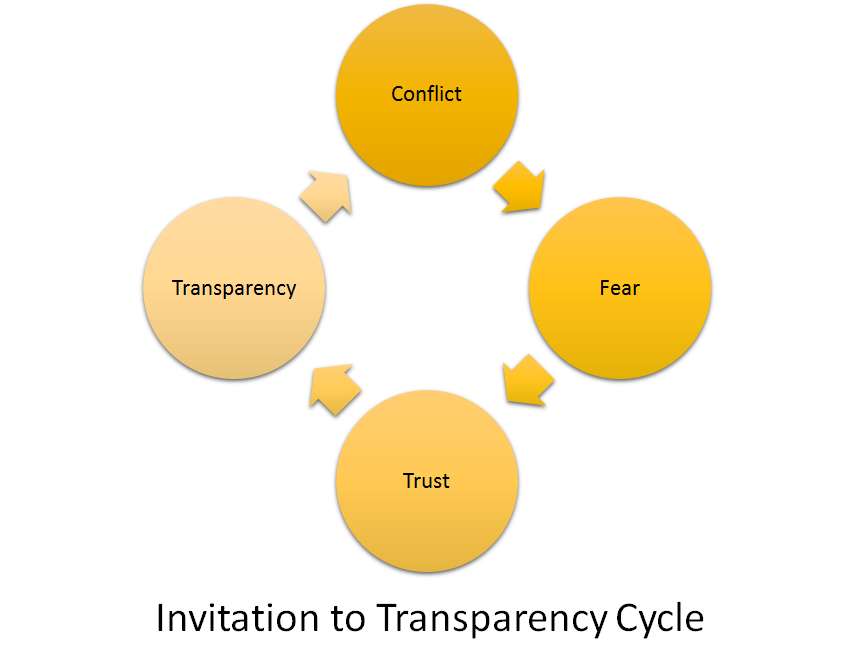When my church plant began it was perfect.
We had a full roster of mature leaders who were experts at shared leadership and conflict transformation. There were people eager to be discipled in the way of Jesus and willing to substantially commit to that endeavor. Because of the relational depth we had cultivated, we agreed on everything, and our gatherings went off without a hitch as everyone experienced personal flourishing serving in ways that perfectly resonated with their unique giftedness.
And then I woke up, and my perfect community drifted back into dreamland!
Conflict
Friends, the good news is authentic community isn’t like that. And, in fact, that might be even better news than we think. Conflict is a fact of life that is a part of every community’s experience. But conflict also presents an opportunity to experience growth, transformation, and love in deeply meaningful ways. We might dream about the “perfect community” but the kind of rich and deep community created as we navigate all the ups and downs of life together is so much more beautiful in the long run.
Conflict is a fact of life that is a part of every community’s experience. ~ Taeler Morgan Click To TweetMy community and I experienced the value of navigating conflict in a way that leads to authenticity 3 months into the start of our weekly dinner & worship gatherings. We faced significant hardship when a founding leader left amid conflict. It was a painful loss for everyone involved, but it was also a leadership and community crucible that could destroy our young and fragile plant. But by the grace of God and the wisdom of our Core Leadership Team (Core Team), it didn’t. In fact, navigating this conflict led to greater authenticity, transparency, and love in our community. As we reflected on how this happened, we could see a pattern emerge. From a place of Conflict, we moved into naming our Fears, from honesty in Fear we moved into practices of Trust, and the fruit of those practices developed greater Transparency.
This is the Invitation to Transparency Cycle:

Fear
As a leader navigating this conflict, I had to come face to face with some of my own worst fears.
I was afraid of being a failure.
I was afraid people would be hurt.
I was afraid this would breed even greater conflict.
Even though all those emotions came roaring to the surface, I also desperately wanted to lead with a deep and authentic sense of transparency and trust. As I shared honestly about these fears with my Core Team, they shared honestly about their fears as well. Our first few meetings after this conflict arose were mostly talking about what we were afraid of: failure on all fronts was a big one. We were afraid people would leave the Core Team (and they did, and it was right for them). We were afraid of hurting people who had already experienced significant church-hurt. We were afraid of having to start over. Those were just a few.
Making our fears visible helped us realize what the rest of our community might also be afraid of. And it enabled us to start to chart pathways of trust. After mourning our loss and naming our fears we needed to create some opportunities to help rebuild the trust among us.
Trust
These pathways included individual and community movements. My Core Team asked me to meet with my spiritual director more often in this season and to let them know that I was doing that. Five weeks after this conflict arose, I went on a long weekend retreat. I did not want to go. It was an act of trust in God and also in my Core Team’s discernment to say yes to that. And it proved to be an incredibly formative time in which God brought substantial healing to me.
Members of the Core Team and I met one on one with every person who was a part of our community. We were honest with them about the profound sense of loss we were feeling and about our fears. This vulnerability made room for them to share their own fears. We shared about what had happened as openly as possible, while respecting the privacy of those not at the table. We sought to answer questions openly and I was honest about my own leadership mistakes. We wept together, and we all entered a season of more fervent prayer for each other and our community.
Transparency
Then we started telling stories. You see, the vulnerability of the Core Team had created space for others to be authentic about their feelings. People were meeting for coffee, not to gossip about the conflict but to share their hurt and their hope. People were praying together for our community and the Holy Spirit was showing up in profound ways. It was around this time that we developed a practice of sharing every week at our dinner gathering where we had experienced God’s presence that week. That is something we still do today.
Vulnerability creates space for authenticity. ~ Taeler Morgan Click To TweetThe transformation we were experiencing was an invitation to greater transparency. As a planter, cultivating personal transparency and trust in your life with God deeply informs the culture of transparency and trust in your community, which in turn brings health and flourishing to your life together and your witness to the world.

Share this Post

